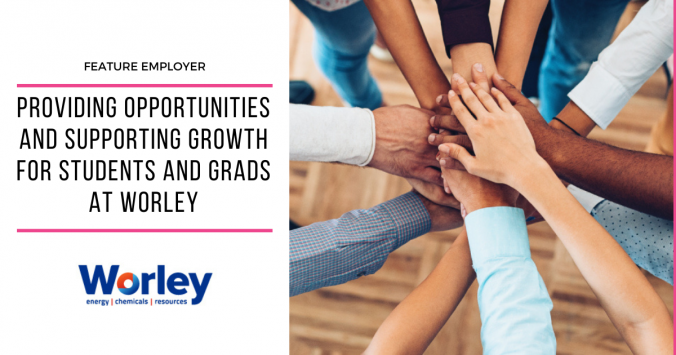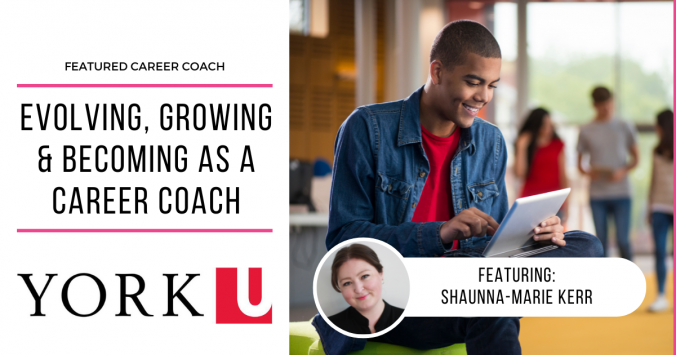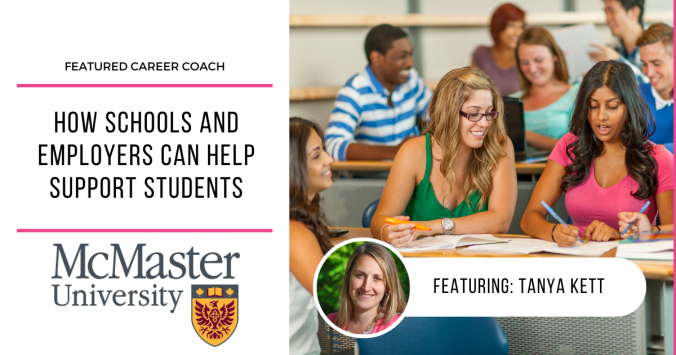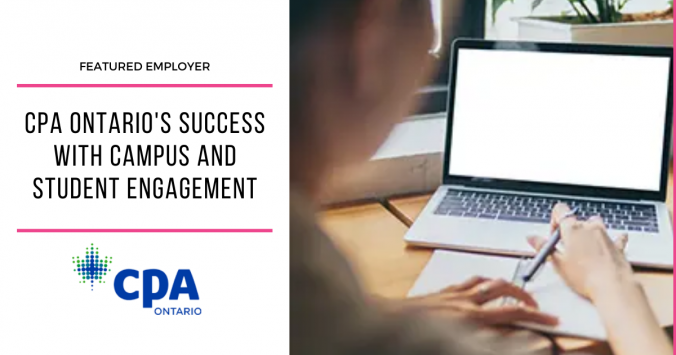McMaster University is one of the top post-secondary schools in the country. We had a chance to speak with Tanya Kett, M.Ed., CDP, CPC, a career counsellor at the university. Tanya supports undergraduate students from all Faculties and levels. Part of this support includes addressing students’ concerns, helping them explore their options, discussing their career goals and developing personalized career and further education plans. Her primary focus is equity-deserving students who experience barriers to their career development. Tanya engages students in a collaborative process to navigate their career journey and works with colleagues to develop new programs and services. The department offers individual appointments, drop-ins and group webinars/workshops, both hybrid and in-person. Here at TalentEgg, we wanted to know more about her 19 years in career development and her advice to schools and employers to help students flourish.
Why Career Education/Coaching?
My high school guidance counsellor encouraged me to work as my co-op in our school’s career centre. I learned about all the resources and assessments we had and eventually had class visits from my peers. At that time, I wanted my career to involve helping people navigate their career and education options — but I had no idea what job that was. It wasn’t one of those job titles we know about (i.e., teacher, social worker, lawyer). Years later, during university at McMaster, I discovered the career centre (where I now work!), got involved as a peer mentor and learned about the different roles, such as counsellor, advisor, coach and practitioner. There were so many options! Building connections from that experience and a few other vital contacts along the way were pivotal to my career.
Rewarding Achievements
My achievements are connected to my students and colleagues. When the students I have the privilege of supporting succeed, that is my most outstanding achievement. When they let me know they landed a job, got accepted to their program or had an “aha moment” about their career path, it lets me know I’ve made a positive impact. It reminds me how valuable our work in the career field is for students. Colleagues who support one another and share expertise and resources contribute to students’ success.
If I had to pick my most outstanding achievement, it would be that I found a career that I love and am passionate about.
Future Goals
I want to carve out more time for professional development. I always have a long list of ideas, such as courses, certificates and conferences to attend, but I tend to focus more on students during the academic year. This doesn’t leave a lot of time for PD. I feel like there is so much to learn about changes in technology and how we deliver service, theoretical approaches to consider, and so many resources to explore.
Commitment to DEI
My commitment is to support students who identify with equity-deserving and diverse groups who may experience barriers to career development. I collaborate with them to identify actionable items, strategize, gather resources and develop a plan to instill a sense of hope, confidence, optimism and self-efficacy so they can realize their career potential. My focus throughout my master’s degree was exploring diverse career development (disability, Indigenous, first-generation and international students) through the lens of student affairs.
Supportive and inclusive employers have the opportunity to create positive and meaningful experiences for students who may need someone to take a chance on them. It is a chance to diversify their team; we all know that diversity adds value.
Pain Points & the Effects of the Pandemic on Students
Students are generally overwhelmed with school and keeping up with other priorities like working, volunteering and extra-curricular opportunities. They often wonder how to be competitive for programs/jobs when they feel they are behind their peers in terms of experiences. The pandemic made it challenging to engage in networking opportunities, such as connecting with professors and employers to foster meaningful conversations. It also took time to adjust to the reliance on technology for academic and work tasks traditionally done in person. Now, everyone is adapting yet again to in-person learning and work environments. They may need to consider more travel time to various in-person appointments and engagements, which didn’t happen as much in the last couple of years.
Transitioning from School-to-Work
In the last two years, our team researched, developed and launched resources to guide students in the transition to work. We now have website content, a downloadable tip sheet, a customizable workshop, and one-on-one support to help students with this transition. During the pandemic, we offered captioned and recorded versions of our live webinars on topics such as virtual interviews, networking and career fairs to equip students with tools to navigate virtual recruitment practices.
Acknowledging, validating and normalizing student concerns is often a starting point for many conversations about transitioning to work. Several students identify with “imposter syndrome,” where they may not feel capable or confident in the role they landed, creating dissonance between their perceived potential and their actual potential. This can happen for various reasons, including diversity identification; therefore, it is valuable for employers to have inclusive training plans, mentoring (matched to employee) and opportunities to check in throughout the first few weeks to foster belonging in the workplace.
How Employers Can Help Support Students
Students with the opportunity to have a mentor at work often tell me how valuable it is to know they have a point person for questions as they transition to their roles. Transitioning from school to work is a great life experience — be kind, be patient and offer support so that students don’t feel like they always have to ask (sometimes they don’t know it’s okay to ask!). For example, ask every employee during the onboarding process if they have accommodation requests; that way, those with accommodation needs will feel included and supported in the hiring process. It will go a long way in building morale and confidence for new employees, which in turn produces a positive company culture. Leverage the digital expertise of Gen Z as our virtual/hybrid work environments evolve.
Connecting With Top Student Talent
The best way is to diversify what employers may consider a “top” student. It’s not always academic achievements or workplace achievements that make a student a great addition; life experiences also count. Consider the students’ potential — maybe they haven’t had the same opportunities as others yet.
Take a holistic approach to the application process and ensure it is inclusive and accessible. Some students may be in a program different from their career interests but engaging in self-learning opportunities because they’ve found what they are passionate about well into their undergrad. This demonstrates a commitment to finishing what they started and the initiative to find other learning or experiential opportunities, skills and qualities relevant in the workplace.
Invest time to train, mentor and foster a culture of inclusion in the workplace not only to attract but also to retain students who may end up as top employees. Some wonderful colleagues across our campus can work with employers to set up company recruitment events, information sessions, coffee chats, etc., and participate in career fairs to get to know our students beyond their application.
Advice For Peer Career Educators
One of my mentors told me many years ago that “career counsellors never stop their career development.” I’ve found that to be true, and it’s advice I pass on to others. New trends, technology and approaches continually shape how we work with our clients. Carve out time for your professional development; watch webinars, read articles, attend conferences, take a course, join professional networks, find a mentor — whatever you find helpful for your practice. Build your network to include a diverse range of contacts.
Final Thoughts
Careers are a journey; they take time to build, grow and develop. It’s essential to choose a direction, not a destination — this leaves more options open for you and optimizes your chances for success. It takes patience, persistence and perseverance. Set goals, build your network and have a parallel plan. These things are all part of building your career resilience.
You are not alone; You will get there.



